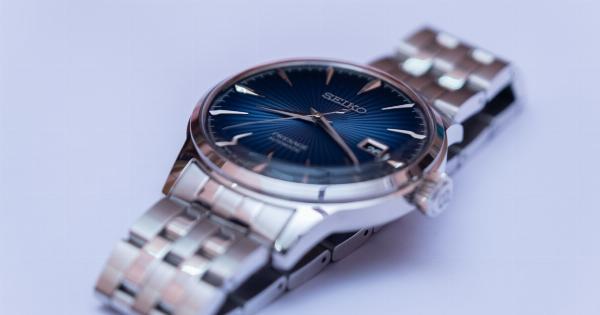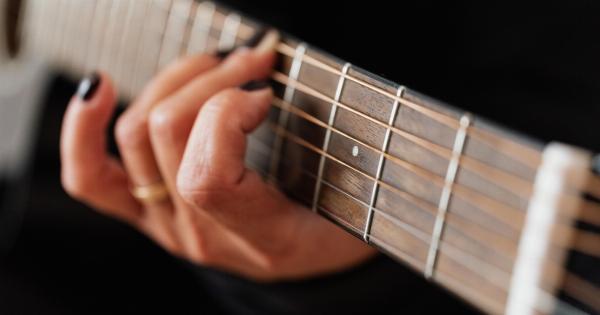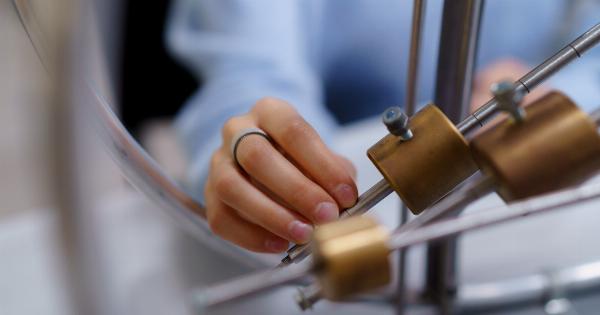Cracking your knuckles or fingers is a habit that many people have. Some crack their fingers out of habit, while others do it to relieve tension or as a nervous habit.
But have you ever wondered what really happens when you crack your fingers? Is it harmful or beneficial? In this video, we will explore the science behind finger cracking and reveal the truth about this common habit.
1. The Sound of Cracking
When you crack your fingers, you may hear a popping or cracking sound. This sound is often associated with the release of gas bubbles from the synovial fluid that surrounds your joints.
Synovial fluid acts as a lubricant and shock absorber for the joints, allowing them to move smoothly. When you apply pressure to your finger joints, it causes a decrease in pressure within the joint space, which can lead to the formation and subsequent collapse of gas bubbles, resulting in the characteristic cracking sound.
2. The Anatomy of the Joints
To understand what happens when you crack your fingers, it’s essential to know a bit about the anatomy of your joints. Your fingers are composed of various bones, connected by joints, ligaments, and tendons.
The joints in your fingers allow for flexibility and movement, but they are also surrounded by a capsule filled with synovial fluid.
3. Gas Bubbles and Joint Pressure
When you apply force or pressure to your finger joints, it can momentarily increase the joint space, leading to a decrease in pressure.
This decrease in pressure may cause gases, such as carbon dioxide and nitrogen, that are dissolved in the synovial fluid to form bubbles. It is these gas bubbles that ultimately collapse and create the cracking sound.
4. The Immediate Effects
After cracking your fingers, you may feel a sense of relief or relaxation. This feeling is subjective and varies from person to person.
Some individuals may experience a temporary increase in joint mobility, while others may not feel any noticeable difference. It is important to note that cracking your fingers does not provide any long-term benefits or improvements in joint function.
5. Is It Harmful?
There is a common misconception that cracking your fingers can cause arthritis or joint damage. However, research has not found any evidence to support this belief. Cracking your fingers, in and of itself, is not harmful to your joints.
It does not increase your risk of developing arthritis or other joint-related conditions.
6. Habitual Cracking and Dependency
Some individuals develop a habit of cracking their fingers, often due to a pleasurable sensation or sense of release it provides. While occasional finger cracking is harmless, habitual cracking may lead to joint inflammation or discomfort over time.
It is important to listen to your body and minimize any excessive or forceful cracking that could potentially cause joint strain.
7. Seeking Professional Advice
If you experience persistent joint pain, swelling, or discomfort after cracking your fingers, it may be a sign of an underlying joint condition.
In such cases, it is advisable to seek professional medical advice from a healthcare provider who can evaluate your symptoms and provide appropriate treatment recommendations.
8. Other Ways to Relieve Joint Tension
If you crack your fingers to relieve tension or promote relaxation, there are alternative methods that you can try.
Stretching exercises, hand massages, and applying heat or cold therapy to the affected joints can help alleviate any discomfort or stiffness. These methods may provide a similar sense of relief without the need for habitual finger cracking.
9. Breaking the Habit
If you want to break the habit of cracking your fingers, it may take some time and conscious effort.
Finding alternative stress-relief techniques, such as deep breathing, meditation, or engaging in a hobby, can help redirect your focus away from finger cracking. Over time, you may find that you rely less on finger cracking as a means of relaxation.
10. Conclusion
In conclusion, cracking your fingers is a common habit that produces a cracking sound due to the release of gas bubbles.
While it may provide temporary relief or relaxation, habitual finger cracking can potentially lead to joint inflammation or discomfort. It is important to be mindful of your finger cracking habits and seek professional advice if you experience persistent joint pain or swelling.
Exploring alternative techniques to relieve tension can help you break the habit and promote overall joint health.































